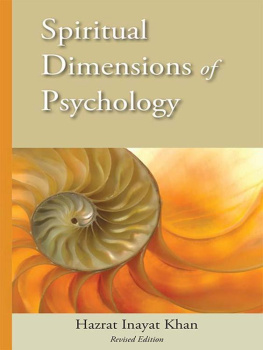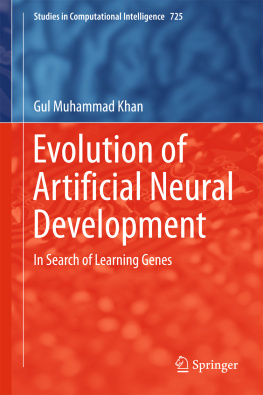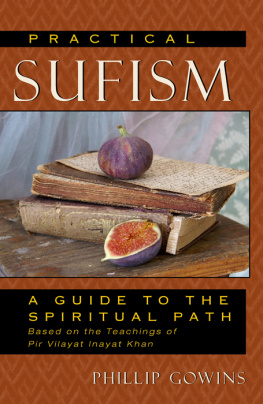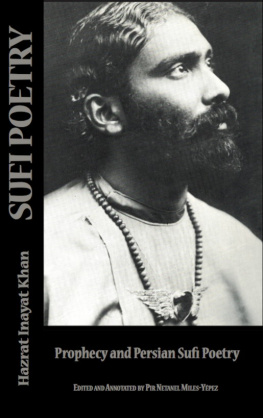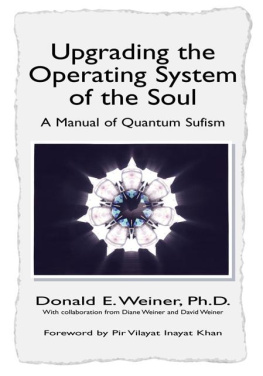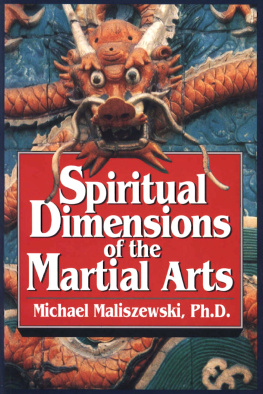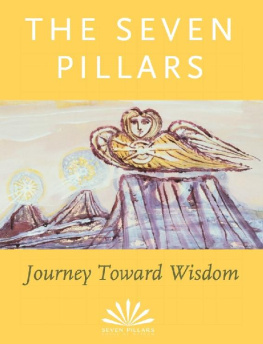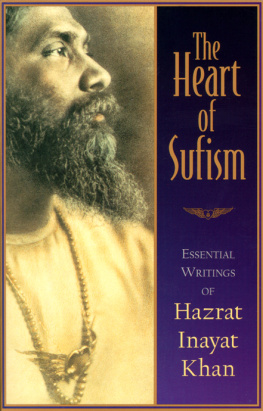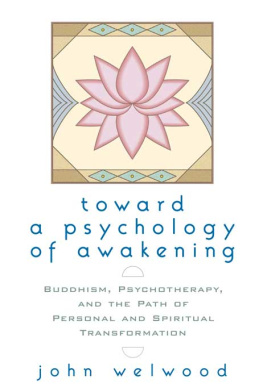Published by
OMEGA PUBLICATIONS INC.
New Lebanon NY
www.omegapub.com
1981, 2011 Omega Publications
1981 Original edition
2011 Revised Edition
All rights reserved. No part of this publication may be reproduced, stored in a retrieval system, or transmitted by any means, electronic, mechanical, photocopying, recording, or otherwise, without prior written permission of the publisher.
Cover image courtesy of Shutterstock
Cover design by Yasodhara Sandra Lillydahl
Inayat Khan (1882-1927)
Spiritual Dimensions of Psychology
Includes editors note, publishers note,
introduction, index, biographical notes
1.Sufism 2. Psychology
I. Inayat Khan II.Title
Printed and bound in the United States of America
13 ISBN 978-0-9308-7287-8
Contents
Selected titles from Omega Publications
The Art of Being and Becoming
by Hazrat Inayat Khan
The Complete Sayings of Hazrat Inayat Khan
The Hand of Poetry; Five Mystic Poets of Persia
by Hazrat Inayat Khan and Coleman Barks
Introducing Spirituality into Counseling and Therapy
by Pir Vilayat Inayat Khan
Life is a Pilgrimage
by Pir Vilayat Inayat Khan
Mastery Through Accomplishment
by Hazrat Inayat Khan
The Music of Life; The Inner Nature and Effects of Sound
by Hazrat Inayat Khan
Song of the Prophets; The Unity of Religious Ideals
by Hazrat Inayat Khan
The Complete Works of Hazrat Inayat Khan series
For a complete listing of Omega titles see
www.omegapub.com
Editors Note 1981 Edition
This compilation of Hazrat Inayat Khans teachings on psychology is made up of transcripts of lectures the Sufi master gave in the 1910s and 1920s. Some of this material has previously been published, scattered throughout a number of volumes in the Sufi Message series; a large portion of it, including most of the papers in , on psychic power and the higher vision, has never before been made public. Psychology is a vast area, and in its broadest sensethe nature and perfectability of the human beingit is the basis of much of Hazrat Inayat Khans work.
Since Spiritual Dimensions of Psychology consists of individual lectures, there is an occasional overlap of subject matter from one chapter to another, and the reader is therefore urged to make use of the index. A number of passages have been deleted and the sequence of others slightly modified to facilitate the flow of ideas and to eliminate as much repetition as possible.
I would like to express my deep gratitude to Pir Vilayat Inayat Khan and to Sajjada and Sikander Kopelman for their inspiration and guidance in the preparation of this book. Thanks are also due to Zahira Rabinowitz and to Munir and Farida Graham for their generous help with proofreading and indexing.
Anka Laura de la Torre Bueno
Publishers Note
2011 Revised Edition
This edition of Spiritual Dimensions of Psychology includes additional material from lectures given by Hazrat Inayat Khan in San Fransciso and Detroit during his final journey to the United States in 1926. The transcripts of these talks have been compiled from The Complete Works of Pir-o-Murshid Hazrat Inayat Khan; Original Texts: Lectures on Sufism, 1926 I: December 1925 to March 12, 1926, published by Omega Publications in partnership with the Nekbakht Foundation.
The chapter Reflection and Repetition incorporates passages from a lecture given at the Sufi Center in San Francisco on February 22, 1926. Entirely new chapters include The Mind and Its Qualities, from a lecture given at the Sufi Center in San Francisco, February 19, 1926; The Control of the Mind, from a lecture given at the Twentieth Century Club in Detroit on February 7, 1926; and Concentration and Meditation, from a lecture given at the Twentieth Century Club in Detroit on February 8, 1926.
Light editing has corrected basic grammar, and eliminated some redundant and extraneous material. The index has been expanded to encompass the additional new sections.
Omega Publications
Introduction
For the Sufi, the mind is a world of its own: a palace of mutually reflecting mirrors, in which imagination emerges creatively out of the divine mindor sometimes runs riot. It is a self-creative realm, where everything thought acquires an existence having its own laws, irrespective of the physical universe. Here memories mesh with memories, moving out of their time-bound setting into the timeless. Here inventions outreach their utility, and ideas interface and crosspollenate, averring themselves to be anonymous.
Like his Sufi predecessors, Hazrat Inayat Khan sees the divine hand in every happening and every thought. Behind what we think is our individual thinking, he sees the thinking of humanity as a whole; if you like, the thinking of the planet: planetary consciousness, which is an extension of the divine mind. For what we believe are our consciousnesses are an infinite array of mirrors, reflecting the One in manifold forms. Indeed, creativity is tapping the divine thinking. It is the mirrors impurities that distort, causing the world of maya, imagination run amok. We recognize here our world of incessant fantasies, phantasmagoria, and self-deception, with its resultant suffering. The only answer is to clear the mirror.
Hazrat Inayat Khan reveals in these pages what the stages of this catharsis are for the pilgrim, and he shows how susceptible travellers on the path are to suggestions (particularly to danger of negative autosuggestion), which build up mental impurities.
When consciousness is refurbished, mind becomes crystal clear, and one begins to develop extraordinary powers of perception, acuity, intuition, even prophecy. Ones dreams and visions become revealing. One sees the cause behind the cause and the purpose beyond the purpose of all situations instead of being obsessed by their outward appearance.
He who discovers meaningfulness attains purpose in his life. Only to the narrowed-down individual mind does the word impossible make sense; to the God-conscious, the only acceptable concept is all-possibility.
Pir Vilayat Inayat Khan
Part I
Psychology
The Science of Mind
Psychology, Science and Esotericism
On the day when science and psychology come to a certain understanding, knowledge will be complete. But when I use the word psychology, I do not mean it in the sense that is generally understood, for the psychology which is known as a new philosophy is in a primitive condition. What I mean by psychology is the point of view of the thinkers; the way the wise look at life; the manner of the thoughtful; the ideas of those who know life more fully. Psychology is the science of human nature, human tendencies, human inclinations, and human points of view. The more a man touches the depths of this science, the more it enlightens him, making life clearer to his vision. Psychology is that which bridges material science and esotericism.
I should mention first that the terms matter and spirit are for our convenience: as far as we perceive life as something tangible, we call it matter; and what is not tangible as a substance but is nonetheless perceivable we call spirit. The knowledge of this we call psychology; and esotericism is that knowledge which is gained not by perception nor by tangibility of substance, but by revelation. So we can divide the three different aspects of science into science, psychology, and esotericism. Science cannot be complete without psychology, nor can psychology be complete without esotericism. It is these three that make knowledge complete, and it is by these that one can hope to understand life more fully.

